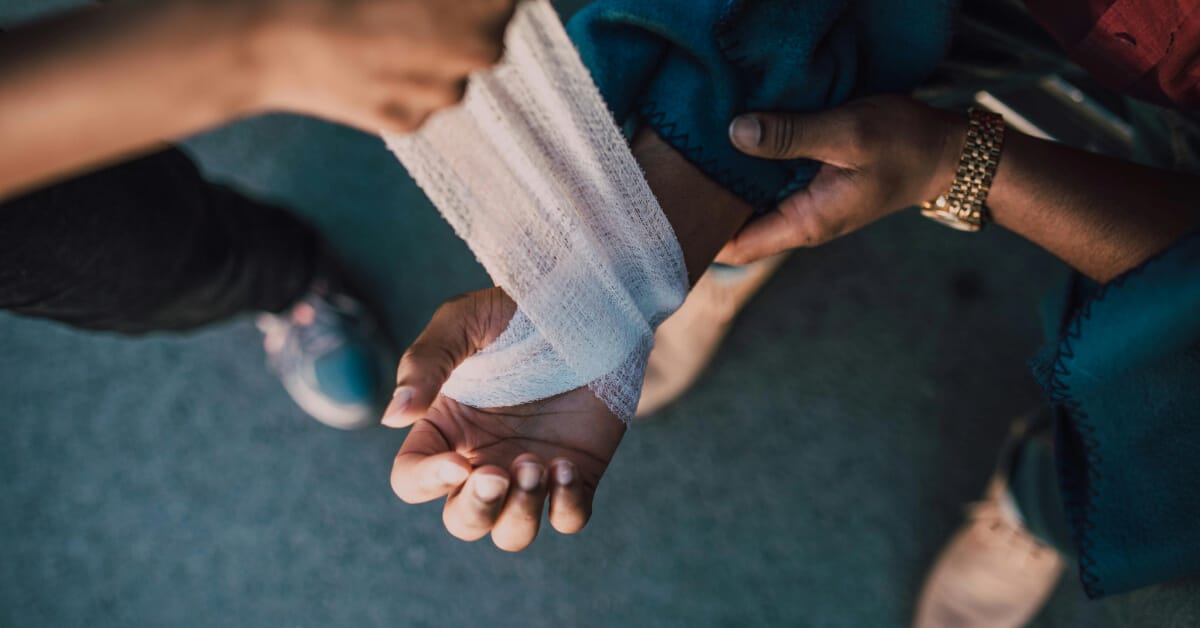The truth is, you don’t need to be a doctor or a paramedic to save a life. The most crucial moments often happen before professional help arrives, and that’s where an “everyday hero” can make all the difference. Learning crisis support skills can empower you to act decisively and effectively when it matters most.
This guide will walk you through five fundamental, life-saving skills that everyone should know. By understanding these, you’re not just preparing for the worst; you’re building confidence and becoming a vital asset in any emergency.
1. Mastering First Aid Essentials: The Immediate Response
Imagine a fall resulting in a deep cut, or a cooking accident causing a burn. Panic is often the first reaction, but knowing First Aid Essentials allows you to move quickly and confidently.
This involves:
- Rapid Assessment: Quickly recognizing what’s wrong and if the scene is safe.
- Bleeding Control: Knowing how to apply pressure to stop severe bleeding—a leading cause of preventable death in trauma.
- Burn Care: Understanding how to cool a burn and protect it from infection.
- Wound Management: Properly cleaning and dressing wounds to prevent complications.
- Recognizing Common Emergencies: Identifying symptoms of heart attack, stroke, or severe allergic reactions so you can call for appropriate help.
These are the immediate, practical steps that can stabilize a situation and prevent minor incidents from becoming major catastrophes.
2. Basic Life Support (BLS): Keeping the Heart Beating
When someone collapses, every second counts. Knowing Basic Life Support (BLS) isn’t just for medical professionals; it’s a critical skill for anyone who wants to be prepared for the most severe emergencies, like cardiac arrest or choking.
BLS training teaches you how to:
- Perform High-Quality Chest Compressions: The cornerstone of CPR, keeping blood flowing to the brain and vital organs.
- Deliver Rescue Breaths: Providing oxygen when someone isn’t breathing on their own.
- Manage Airway Obstructions: Knowing how to help an adult, child, or infant who is choking.
- Follow the BLS Algorithm: A step-by-step approach to responding to an unresponsive person.
BLS empowers you to maintain life until advanced medical help arrives, significantly increasing the chances of survival.
Turn knowledge into action.
Get the confidence and the skills you need to save a life with our expert-led Crisis Support Worker course.
3. Understanding Disaster Casualty Care: Beyond the Everyday
While everyday accidents are common, larger-scale emergencies and disaster casualty care require a unique set of skills. Think about the specific challenges of a major accident, a natural disaster, or a public health emergency.
This advanced aspect of crisis support includes:
- Recognizing Disaster-Specific Injuries: Such as crush wounds, severe burn injuries, or smoke inhalation, which demand specialized initial care.
- Safe Movement and Extrication: Knowing how to carefully move an injured person from a dangerous environment without causing further harm.
- Mass Casualty Principles: Understanding how to prioritize care when there are multiple injured individuals (though a full triage system is typically for professionals, awareness is key).
Being prepared for Disaster Casualty Care means you can contribute effectively in the chaos that often follows a widespread emergency.
4. Providing Mental Health in Crisis Settings: The Invisible Wounds
Not all wounds are visible. In any crisis, the psychological impact can be as devastating as the physical. This is where Mental Health in Crisis Settings becomes paramount. Mental health crisis support involves understanding and addressing the immediate emotional needs of individuals experiencing trauma or acute stress.
You don’t need to be a therapist to provide crucial psychological first aid. It is about offering a human connection and a sense of safety. The power of this support is a testament to our shared humanity. In the face of widespread crises, like the ongoing situation in Ukraine, the ability for community members to support one another’s mental well-being is not just helpful—it’s essential for recovery and resilience.
As part of our commitment to this principle, Lecturio is proud to offer the Crisis Support Worker course completely free of charge to all citizens of Ukraine.
Being able to offer this type of crisis support services is a profound way to help individuals start their journey toward recovery from trauma.
5. Strengthening Overall Preparedness for Any Crisis
Ultimately, knowing these skills strengthens your overall readiness for any emergency—from public health emergencies to natural disasters or just an everyday mishap. Preparedness isn’t about fear; it’s about empowerment. It means you can be a stable, knowledgeable presence when others are panicking.
You’ll be better equipped to:
- Protect your family and friends.
- Contribute to your community’s safety.
- Act with confidence instead of helplessness.
- Reduce the severity of injuries and trauma.
Be the Prepared Individual Your World Needs
To truly gain the confidence and competence to act decisively under pressure, hands-on knowledge and structured training are essential. Equip yourself with the knowledge and skills to make a real difference.
The Lecturio Crisis Support Worker course is specifically designed for individuals like you—medical and non-medical staff, families, and civilians—who want to volunteer in crisis situations and be ready for any emergency. This comprehensive online course bundles First Aid Essentials, Basic Life Support (BLS), Disaster Casualty Care, and crucial Mental Health in Crisis Settings training into one program.
